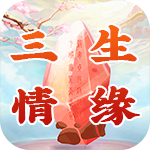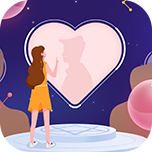1. 小學英語常見和常用的句子
What do you do?I am a student.
Wha's your name?My name is 。。
What is he like?he is tall and strong.
How are you?Fine,thank you.
How does he go to work?He goes by car.
What should you do after watering seeds?Put the seeds in the sun.
What can you see? I can see 。。
How old are you ?I am 。。
What is the date ?It's December 22nd.
還有許多句子,要的話跟我說.
2. 小學生常用英語短語句子
一、短語1、put on your coat 穿上你的外套2、much colder 冷得多3、take your raincoat 帶上你的雨衣4、quite cold 相當冷5、make snowmen 堆雪人6、eat ice cream 吃冰激凌7、sit by the fire 坐在火邊8、go sightseeing 去觀光9、wear T-shirts or skirts 穿T恤或裙子10、stopworking 停止工作11、think about 考慮12、far away 遙遠13、ask for help 請求幫助14、give me something to eat 給我一些吃的15、nearly the same 幾乎一樣16、late March 三月下旬 二、句子1、What's the weather like today?---It's sunny/windy/rainy/snowy/cloudy/foggy. 天天氣怎麼樣?---陽光燦爛的/多風的/下雨的/下雪的/多云的/多霧的2、What's the temperature?-----It's 27'C. 溫度是多少?27度。
3、The school bus is coming. 校車就來了4、Is it much colder than in Guangzhou? 那里是不是比廣州冷得多?5、I like skiing. 我喜歡滑雪。6、We'd better take more warm clothes. 我們最好多帶點暖和的衣服。
7、What will the weather be like tomorrow?-----It will be。..明天的天氣將會是怎麼樣的?它將是。
8、What's the weather like in New Zealand?----It's 新西蘭的天氣怎麼樣?它是。
9、How many seasons are there in。
.?------There are four,spring,summer,autumn,winter. 。
有多少個季節?---有四個,春季,夏季,秋季,冬季。
10、When is autumn?---Autumn is from September to November. 秋季是什麼時候?--秋季是從九月到十一月。11、What season do you like best?=What's your favourite seson?----I like.summer best.(My favourite season is summer.) 你最喜歡什麼季節?我最喜歡夏季12、What are the summer months in Guangzhou?---June,July,August are the summer months. 廣州的夏季包括哪幾個月?六七八月。
13、In many places of China,spring is usually short.在中國的許多地方,春季是非常短的。14、Summer usually lasts from June to August. 夏季通常從六月持續到八月。
15、Which is the hottest month in Guangzhou?----July. 廣州最熱的月是哪個月?--七月。三、一些形容詞的比較級1、hot-hotter 2.cool-cooler 3.cold-colder 4.warm-warmer 5.sunny-sunnier 6.windy-windier 7.dry-drier 8.wet-wetter Expressions: 1. aim to do sth. 立志要…… My brother aims to be a famous doctor. 2. be crazy about … 熱衷于……;狂熱于…… Most boys and girls today are crazy about the singer Adu. 3. more than 不止……;多于…… Hibernation is more than sleep. 冬眠不止是睡眠。
More than one house was burnt down in that big fire last night. 4. take turns。 輪流做…… 常用于take turns at sth. 和take turns to do sth. On our way to Beijing, we took turns at driving. The two daughters took turns to look after their sick mother. 5. make of。
把……認為……;以……為……。 沒有被動語態。
常用于what的疑問句或否定句中。 I can't make anything of what he said. What do you make of our new boss? 6. in space 在太空。
space 前無冠詞,但可以用形容詞加以修飾。 There are many manned satellites in space. in outer space 在外層空間 7. Now that 連詞,既然已……;現在以……。
that 可以省略。 Now (that) I've seen how he lives, I know why he needs so much money. 8. in total = altogether 總計;總共 Traveling abroad once will cost you 8,000 dollars in total. 9. come out vi. ①出現②開花;發芽③真相大白④出版 The moon has come out from behind the clouds. Spring has come and the tree has come out. The facts came out through the investigation of the government.通過政府的努力事實已經真相大白。
His new book will come out recently. 10. belong to vt. 屬于……。沒有被動語態和進行時態。
What does the car parking under the tree belong to? China is a country belonging to the third world. (China is a country which belongs to the third world.) 11. on board adj. & adv. & prep.搭乘(飛機、車、船等)的;在(飛機、車、船等)的。做prep.時其后常跟具體的交通工具。
As soon as we went on board, our ship left the port. There were 500 passengers on board the ship. Sentence patterns: 1. Now that I made this first visit, I hope I can come many more times. now that 是一連詞,為“既然,因為”之意。相當于since. 引導的從句在句中作原因狀語。
that可以省略。 例如:Now (that) you mentioned it, I'll explain it to you. 2. While she was waiting for a taxi outside the studio, she met Sam Parish. 此處while是并列連詞,連接兩個同一時刻發生的動作的句子,while從句中的謂語動詞應為延續性動詞,可以置于句首或句末。
while有時還可以表示比較。例如: I'd like to read books while I'm traveling on board the train. Motion is absolute while stagnation is relative. 運動是絕對的,而靜止是相對的。
I like sports while my younger brother likes listening to music. 3. The story took place in the early 1800s in China. 這個故事發生在19th 早期的中國。
3. 小學生常用英語短語句子(50)句
1. Hello, … 你好。
2. Hi, … 喂,你好。3. Good morning/ afternoon/evening.早上/下午/晚上好.4. How are you(this morning/afternoon/evening)?你今天早晨/下午/晚上好嗎?5. Fine, thank you/ thanks. 我很好,謝謝。
6. Not bad, thank you. 不錯,謝謝。7. Welcome back to school. 歡迎回到學校來。
8. Welcome to our school. 歡迎到我們學校來。9. Happy birthday! 生日快樂!10. What's your name, please? 你的名字是什麼?11. Your name, please? 你叫什麼名字?12. My name is…/ I'm… 我的名字是…/ 我名叫…13. This is Miss/ Mr/ Mrs… 這位是…小姐/先生/女士。
14. This is my friend. 這是我的朋友。15. Come and meet my friends. 過來見見我的朋友們。
16. How do you do? 你好。17. Nice to meet e you. 很高興認識/見到你。
18. Goodbye. 再見19. Good night. 晚安。20. How old is he? 他多大了?21. Thank you./ Thanks. 謝謝。
22. You're welcome. 不用謝。23. That's all right. 沒關系。
24. I'm sorry. 對不起。25. Sorry, I don't know. 對不起,我不知道。
26. Excuse me. 對不起,打擾一下。27. Come in, please. 請進。
28. Have some bananas, please. 請吃些香蕉。29. It's time for the cakes. 該吃些蛋糕了。
30. May I come in? 我可以進來嗎?31. Come in, please. 請進。32. May I have yours? 我能吃你的嗎?33. Can I have two cakes? 我能吃兩個蛋糕嗎?34. No, you can't. 不,你不能。
35. Can I have one,please? 我能吃一個嗎?36. Yes./All right. Here you are. 好的。給你。
37. Can I go with you? 我能和你一起走嗎?38. Sure. 好的。39. Do you know his telephone number?你知道他的電話號碼嗎?40. Are you sure? 你能確定嗎?41. Yes. I'm sure. 是的,我肯定。
42. Maybe he's in the teachers' office.可能他在老師辦公室。43. We're about the same age, I think.我想我們大概年齡相仿。
44. Yes, you're right. 是的,你是對的。45. You're wrong. 你錯了。
46. I like …very much. 我非常喜歡…47. I like to draw pictures there.我喜歡在那兒畫畫。48. Me too. 我也是。
49. Can I help you? 我能幫你嗎?50. Yes, a dress for my daughter.是的,給我女兒買條裙子。51. What do you want, a dress or a skirt?你想要買什麼?連衣裙還是短裙?52. How about the blue one? 這條藍色的如何?53. How much is it? 多少錢?54. Fifty-nine yuan. 五十九元。
55. Excuse me, where's the cinema? 請問,電影院在哪?56. Where's the teachers' office, please?老師辦公室在哪?57. Excuse me, how can I get to the post office?請問,怎麼走才能到達郵局?58. Can you show me the way to the bank, please? 你能告訴我去銀行的路怎麼走嗎?59. It's over there, near the Bank of China.就在那兒,中國銀行的旁邊。60. This way, please. 請這邊走。
61. Sorry, I don't know. You may go and ask him. 對不起,我不知道。你可以去問他。
62. What's the time? 幾點了?63. Excuse me, what's the time, please?請問,幾點了?64. It's time to get up/go to school…到了起床/去學校的時候了。65. It's time for… 到了(做)…的時候了。
66. Look at the blackboard, please. 請看黑板。67. Go and get him. 去把他找來。
68. Let me have a look, please. 讓我看一看。69. Let's play a game today. 今天我們來做個游戲。
70. Now listen to me, please. 現在請聽我說。71. Can you look after my bag and clothes, please?你能幫我照看一下我的書包和衣服嗎?72. Yes. /All right./ OK./ Sure. 好的。
73. Look at his coat. 看他的外套。74. Shall we go now? 我們現在可以走了嗎?75. Let's go to school. 讓我們去學校吧。
76. Yes, let's. 好的,走吧。77. Let's get some(red) flowers.讓我們來摘些(紅)花。
78. Please don't. 請不要。79. Don't turn off the TV. 別關電視。
80. Very good. 很好。81. Great!/ That's great. 太好了。
/棒極了。82. How nice! 多漂亮啊!83. How beautiful! 多美啊!84. It's lovely. 它真可愛。
85. Oh, dear! 哦,天啊!86. Pardon? 對不起,請再說一遍。87. Excuse me, would you please tell me…?對不起,你能告訴我…?88. What can you see? 你能看見什麼?89. Where are the balls? 球在哪兒?90. Look, they're between the bags.看,它們在書包中間。
91. What's that on the wall? 墻上的那是什麼?92. It's a photo of my family. 是我們家的全家福。93. There are some toy boats on the desk.桌上有些玩具船。
94. Please give it to me . 請把它給我。95. Who are they? 他們是誰?96. Their names are… 他們的名字是…。
97. What's your telephone number?你的電話號碼是什麼?98. Shall we call her? 我們打電話給她好嗎?99. What a clever boy he is! 他是個多麼聰明的孩子啊!100. How beautiful the girls are!這些女孩多漂亮啊。
4. 初中英語口語考試常用的句子
這個網站好
用來表達喜、怒、哀、樂等強烈感情的句子叫做感嘆句,句末用感嘆號。
1、一般用感嘆詞how或what引導,how修飾形容詞或副詞,what修飾名詞。
2、how引導的感嘆句,基本結構是: How+形容詞/副詞+主語+謂語!(主謂可省略)
eg. How beautiful the park is!
3、What引導的感嘆句:基本結構是:
①What+a/an+形容詞+可數名詞(單數)+主語+謂語!(主謂可省)
eg. What a nice girl (she is)!
②What+形容詞+可數名詞復數(或不可數名詞)+主語+謂語!
eg. What beautiful flowers they are!
注意:What感嘆不可數名詞時,名詞前面不能加不定冠詞a/an 。
eg. What a good news it is!
類似的有:What bad weather! What hard work! What delicious food!等
特殊疑問句:以疑問代詞或疑問副詞開頭,提出疑問的句子。
它的基本結構是:特殊疑問詞+一般疑問句語序。但是如果疑問詞在句子中作主語或作主語的定語,就用特殊疑問詞+陳述句語序。常用的疑問詞有:what, who(whom), whose,which, when, where, how, why等,回答時針對問句中的代詞和副詞來回答,不用yes或no來回答。
多說些讓考官中聽的話,要應人而已,
至于熱點嗎,多看新聞聯播拉
5. 常用英語對話的句子有哪些
It's cold outside, put on your coat. 外面冷,穿上你的外衣。
What can you see in the picture? 你能在圖上看到什麼?
Look at the blackboard. What did you see on it?看黑板!你看到了什麼?
It's a fine day for a walk today. 今天是散步的好時候。
Lucy looks nice. 露西看上去很漂亮。
These coats are very nice. 那些裙子很好看。
Nice to meet you. 見到你很高興。
It's very nice of you. 你真好。
這只是幾句,還有好些/note/290403023/
6. 小升初口語面試的常見口語句子
1:開頭總結式
-thesubjectofmypresentationis。
-Ishallbespeakingtodayabout。"
-Mypresentationconcerns。
-Todayweareheretogiveaspeechon。
-Todayweareheretotalkabout。Beforewestart,I'dlikeyoumeetme。
-Beforeistartourpresentation,let'stakeabrieflookattheagenda。
-Ishallbeofferingabriefanalysisof。
-Thankyouforgivingmetheopportunitytotellyouaboutme。
2引起聽眾的興趣
-I'mgoingtobespeakingaboutsomethingthatisvitallyimportanttoallofus.
-Mypresentationwillhelpsolveaproblemthathaspuzzledpeopleforyears。
-Attheendofthispresentationyouwillunderstandwhythiscompanyhasbeensosuccessfulforsolong。;
-Iamgoingtobetalkingaboutaproductthatcoulddoubleyourprofitmargins。
-thenexttenminuteswillchangeyourattitudetosalesandmarketing。
-Overthenexttenminutesyouaregoingtohearaboutsomethingthatwillchangethewayyourcompaniesoperate。
-Bytheendofthispresentationyouwillknowallthereistoknowabout。
結束語有這樣幾種比較精彩的選擇:
-Inconclusion,I'dliketo。
-I'dliketofinishby。
-Finally。
-Bywayofconclusion。
-IhopeIhavemademyselfunderstood
-Ihopethishasgivenyousomeidea/clearidea/anoutlineof。
-Letmeendbysayingthanks.
-That,thenwasallIhadtosayonme
-IhopeI'vemanagedtogiveyouaclearerpictureofme.
-Thankyouforyourlistening.
另外在闡述完自己的觀點和看法之后可能也會接受考官的一些問題.考官會問:mayiaskyousomequestions?或者iwanttoaskyousomequestions,ok?
這個時候我們也可以適當發揮一些,以達到和別人不同,給考官留下深刻印象的目的.
所以你可以這樣回答:
-Iwillbepleasedtoansweranyquestionsyoumayhaveattheendofthepresentation.-
-Ifyouhaveanyquestions,Iwillbepleasedtoanswerthemattheendofthepresentation.
-Pleasefeelfreetointerruptmeatanytime.
Pleasestopmeifyouhaveanyquestions.
Iwillbecomingtothatpointinaminute.
-Yes,that'saverygoodpoint.

















